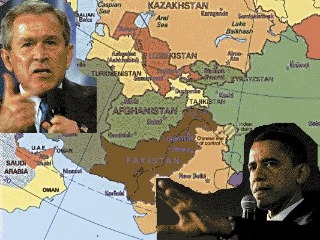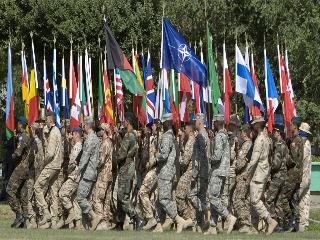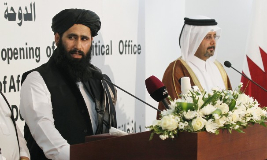TTP-Pakistan Dialogue: The Post-Hakimullah Scenario
By Rizwan Zeb (the 13/11/2013 issue of the CACI Analyst)
After the death of Tehreek-e-Taliban Pakistan (TTP) leader Hakimullah Mehsud in a U.S. drone attack and the appointment of the hardliner and staunchly anti-Pakistan Mullah Fazlullah, prospects for Pakistan’s dialogue process with the TTP seem bleak. Prime Minister Nawaz Sharif nevertheless pledged to continue the peace talks. At the heart of this decision is the confusion that after more than a decade, Pakistan’s political leadership is still debating whether this is its war and whether they should talk to its own people. This position indicates a clear lack of understanding of the jihadist mindset, and of the realities and challenges that Pakistan is facing.

“CACI Analyst, October 30, 2013”
AWOL: U.S. Policy in Central Asia
By Stephen Blank (the 30/10/2013 issue of the CACI Analyst)
The U.S. has decided to give up the base at Manas, presumably because that base is not worth retaining once it leaves Afghanistan next year, and will relocate the base to Romania. Washington is instead moving most of its logistics through Pakistan, with a corresponding decline in the use of the Northern Distribution Network. Once U.S. forces leave Afghanistan there will be no military presence in Central Asia to speak of. Second, the TAPI gas pipeline from Turkmenistan through Afghanistan and Pakistan, nominally the centerpiece of America’s New Silk Road initiative, languishes for lack of any financing.

NATO in Afghanistan – Paralysis as Policy?
By Richard Weitz (the 30/10/2013 issue of the CACI Analyst)
NATO’s inability to commit to a definite role in Afghanistan beyond 2014, along with perceived strategic setbacks in Central Asia and the South Caucasus, are reinforcing the narrative promoted by the Taliban, al-Qaeda, Iran, and to a lesser extent Russia and China, that a war-weary West is abandoning Eurasia. Urgent measures are needed during the next months to reverse this perception before it gains irreversible momentum. The perception is already leading regional players to hedge against the expected consequences of a diminished NATO role. NATO needs to reaffirm and clarify its commitment to Afghanistan and Eurasia.

The Doha Process and Afghanistan's Future
by Naveed Ahmad (the 08/21/13 issue of the CACI Analyst)
The Taliban finally have an address, far from their power base in Afghanistan. The place, commonly referred to as the “Taliban Embassy” by Doha taxi drivers, is receiving mixed reactions. After its opening on June 18, Pakistan welcomed the decision; India expressed caution that the office may confer “legitimacy” to the terrorist group while China found the development as “encouraging” and “positive progress.” Afghan President Hamid Karzai continues to stall the tripartite talks besides putting on hold a fourth round of negotiations on the status-of-forces agreement (SOFA) with the U.S.




